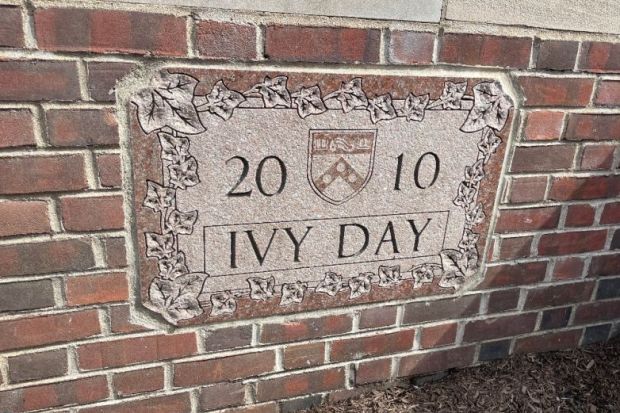Dartmouth College has raised $90 million (£65 million) to extend its need-blind admissions policy to its overseas applicants, seeking gains in social equity, student quality and global reputation.
With the move, Dartmouth joins just five other elite US institutions – mostly fellow members of the Ivy League – in promising the consideration of international students for admission without regard to their financial means.
“To me, it was a question of equity,” said Lee Coffin, Dartmouth’s vice-provost for enrolment and dean of admissions and financial aid, of the shift.
The policy also helps Dartmouth spread its brand in a period of rising global competition, while reaching into countries to discover top students wherever they may be, Mr Coffin said in an interview.
After long relying on recruitment from parts of western Europe, Greece, Turkey and South Korea, Dartmouth is now taking applicants from 157 nations, he said. But in such places as Brazil, Vietnam and much of Africa, he said, a “super majority” of the applicants can’t afford the tuition.
“There’s talent in these other places that will enrich our campus,” Mr Coffin said. “We don’t want to limit ourselves just to the places where we’re known.”
Dartmouth’s policy stands in contrast to the widespread practice among public institutions in the US and elsewhere to charge foreign students especially high prices to cover their non-payment of domestic taxes and to subsidise overall academic operations.
It also marks a small rebound in the number of private US universities that are promising their overseas applicants a wealth-free assessment of their candidacies, raising the group back to six after having been twice that size a couple decades ago. The other five beyond Dartmouth are Harvard, Princeton and Yale universities, the Massachusetts Institute of Technology and Amherst College.
In part, experts said, the decline in that group reflected a balancing of financial resources back in the direction of helping low-income minority students in the US, especially after the Great Recession of 2008 when the economic fortunes of China – the top supplier of international students in the US – rebounded more quickly.
Dartmouth counts about 17 per cent of its students as eligible for the Pell grant, the main federal subsidy for low-income students, and hopes to keep increasing that share towards 20 per cent by 2029, Mr Coffin said. The nationwide average in US higher education is more than 30 per cent, though Dartmouth’s level is in line with that of highly selective institutions.
Dartmouth’s decision to boost the prospects of needy foreign students was made possible by a $90 million fundraising drive that included a pledge of $40 million – the single largest scholarship gift in the college’s 253-year history. The interest off that money is estimated to let Dartmouth admit any international student it chooses and then cover, as needed, the $70,000 to $80,000 annual cost.
That donation and its prioritisation, however, don’t mean any corresponding lack of attention by Dartmouth to needy domestic students, Mr Coffin said. “I don’t see these two groups as in opposition with each other,” he said. “To me, it's not either-or, it’s both.”
Overseas students comprise about a quarter of all Dartmouth’s applicants, and about 14 per cent of those enrolled. Helping the needy among them is especially difficult, the college noted, because they are not eligible for US government aid.
While the $90 million stockpile should be sufficient, Mr Coffin said he admitted to Dartmouth’s trustees that it’s hard to be sure what share of needy international students eventually will be admitted in a need-blind scenario. “It’s a bit of a leap of faith,” he said.
And on wider equity challenges, Dartmouth also continues to examine the role of legacy preferences in its admissions process, Mr Coffin said. “I think all of us are considering that question right now,” he said.




